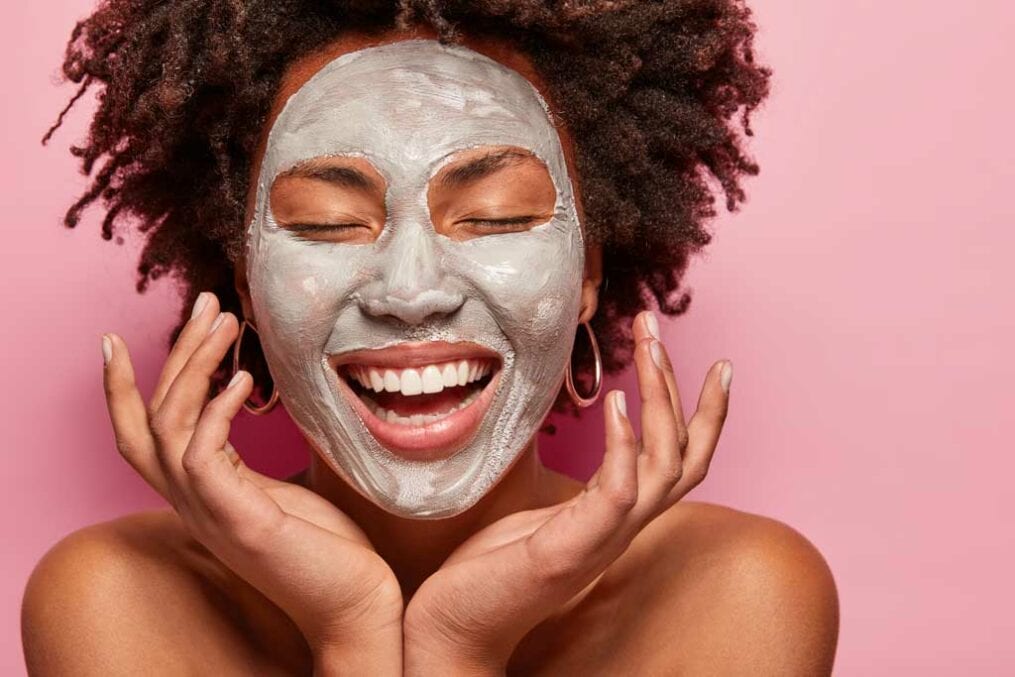How to protect your skin from air pollution

Earlier this year, the government published its Clean Air Strategy, with an emphasis on reducing the wider impact air pollution has on both the environment, and our health. But, for the past five years, the UK has breached EU pollution limits. Clearly, change isn’t going to happen overnight and, in the meantime, you wouldn’t be blamed for wondering what dangerous levels of toxins in the air means for your skin.
‘The environment is becoming an increasingly complex soup of fine, invisible particles, which come from many different sources,’ says aesthetic doctor Dr Mervyn Patterson. ‘One of the biggest offenders is diesel particulate matter. These are microscopic particles and mainly come from the soot emitted from cars and lorries. But it’s a complex mix, including other carbon particles, all of different sizes and chemical compositions. They sit in the atmosphere in the air we breathe and on our skin, too.’
Linked to both premature ageing and worsening skin conditions such as eczema, this particulate matter affects us all – city-dweller or not. Much smaller than the pores through which our skin breathes, the particles find their way in, triggering inflammation. It sounds doom-and-gloom, but there are measures you can take with your skincare to face up to pollution.
Keep it pure and simple
Luckily, a large part of tackling our smoggy situation comes down to following a normal skincare routine, with best-practice cleansing front and centre. ‘It’s simple, but essential,’ says Dr Patterson. ‘Cleanse off make-up and sunscreen. Every evening, remove the layer of material you’ve accumulated and never sleep in it.’ Use a gentle cleanser to avoid stripping the skin, as you need your skin barrier in tip-top condition to see away potential invaders. Skin should feel thoroughly clean, but not tight or dry after using. Creams and lotions are typically kinder to skin while still being effective, but find one for your skin type, which is suited to any skin conditions you may be suffering from.
Neutralise the enemy
You could probably recite the benefits of facial sunscreen in your sleep, but it may be time to upgrade. ‘Use a sunscreen with a protective element,’ says Dr Patterson. ‘You want a product that has the usual zinc and titanium protection, but also has a mesh of iron oxides. This traps the gases coming through in the air and neutralises them, defusing the environment as it hits the skin.’
Love your lipids
‘If you can keep your external skin barrier healthy, it will help to reflect and keep out pollution,’ says Dr Patterson. He advises avoiding frequent physical exfoliation in your skincare routine: ‘You’re harming the barrier, and making skin more vulnerable.’ Barrier repair technology is a complex area, but essentially, you’re looking for three key lipids: cholesterol, ceramides, and free fatty acids. ‘These lipids sit in between each cell on the surface of the skin, hugely contributing to the defensive mechanism of the top skin cells,’ says Dr Patterson. ‘To get the skin to heal as fast and as well as possible, use a cholesterol-dominant formulation, but these can be hard to find.’ Our advice? Look for buzzwords ‘defence’ and ‘barrier’ on the label and chat to store staff.
Carry out damage control
‘For those particles that do get through and inevitably some will, the best course of action is to control the inflammatory response,’ says Dr Patterson. ‘Inflammation has a lot to answer for in terms of our skin health. A study found a definite association between the amount of particulate matter in the air and the incidence of skin pigmentation, particularly on the face. This is because the skin’s natural response to inflammation is to create melanin as a shield,’ says Dr Patterson. ‘Inflammation also causes a mismatch between the reabsorption of collagen and the production of it, causing wrinkling. And there’s a lot of evidence it also contributes to the high numbers of skin cancers we’re now seeing, thanks to DNA damage.’
To find technology that understands how to calm the inflammatory process, Dr Patterson advises turning to nature. ‘The typical anti-inflammatories used are botanical,’ he says. ‘Plants have developed a complex array of defence mechanisms against environmental pollution and UV. They can’t move out of the sun, they can’t avoid pollution, so they contain effective anti-inflammatory ingredients.’ Look for those with proven effects, which include date, meadowfoam and safflower, says Dr Patterson.











